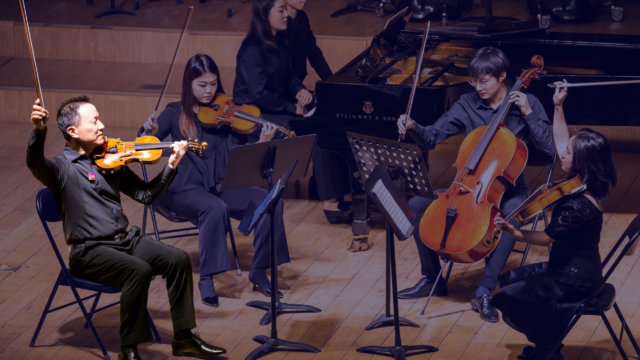Sample Actions Your Orchestra Might Take
The most effective advocacy efforts are tailored to address a local community’s unique resources and opportunities, in partnership with local stakeholders. Your orchestra’s alignment in support of in-school music education helps your community. While there is a benefit to be gained for your orchestra, music education advocacy is a civic opportunity and a way to participate in broader community concerns. Below are examples of actions your orchestra might take to advocate for music education in your community.
- Review the Orchestras Support In-School Music Education (PDF) with community partners and make plans to work together. Consider tailoring the statement for use in your community.
- Stay up to date on the federal education law, the Every Student Succeeds Act, and how orchestras can be involved in next steps at the state and local level via the League’s Every Student Succeeds Act Resource Center.
- Engage your orchestra’s ready-made advocates – trustees, musicians, volunteers, staff, and others that may already be well-acquainted with local education policymakers.
- Actively seek opportunities for key leaders of your orchestra (music director, musicians, executive director, and others) to speak on behalf of in-school music education in the local press, at school board meetings, and in other public settings.
- Survey your entire board for ‘who knows whom’ amongst mayor, city/county officials, board of education, etc. (Reassure board members that no communication is initiated or occurs in the board member’s name without express permission.)
- Participate in local, regional, and national advocacy networks.
- Get to know your state’s standards for music education and your statewide NAfME chapter.
- Understand the broader educational issues of concern in your community and the challenges and opportunities facing local schools and educators – and how your orchestra can help.
- Honor local music educators and supportive school administrators at a performance or other event.
- Create a discussion group among other arts organizations to coordinate advocacy activity.
- Advocate for the presence of a fine-arts coordinator in your school district.
- “Adopt” a first-year music teacher, providing encouragement as they begin the teaching profession.
- Organize a musical instrument drive for your community – From Attic to Classroom Guide (PDF) is a free guide on how to do this.
- Invite school officials to a reception highlighting the benefits of music education.
- Get to know your community’s school board members and other educational decision-makers, and share with them resources such as What School Leaders Can Do to Increase Arts Education (PDF), which offers three concrete actions that school principals can take with little-to-no cost to increase arts education in their schools in a variety of grade levels.
- Ask board of education candidates for their position on increased resources for music/arts education in the schools.
- Send information about benefits of arts education to legislators and school board members.
- Send letters to the editor – in response to articles about music/arts education to increase dialogue and visibility of the issue in the community.
Your orchestra’s alignment in support of in-school music education helps your community. While there is a benefit to be gained for your orchestra, music education advocacy is a civic opportunity and a way to participate in broader community concerns.
Article Topics:
Related
-
Learn | Travel with Instruments
Know Your Bow: New Rules and Essential Steps for Pernambuco Sustainability
-
News | Advocacy
NEA, Bow Owners, Visas, and Charitable Giving
Become a member
Thank you for your interest in the League of American Orchestras! We are dedicated to advancing the orchestral experience for all.
Join Now
